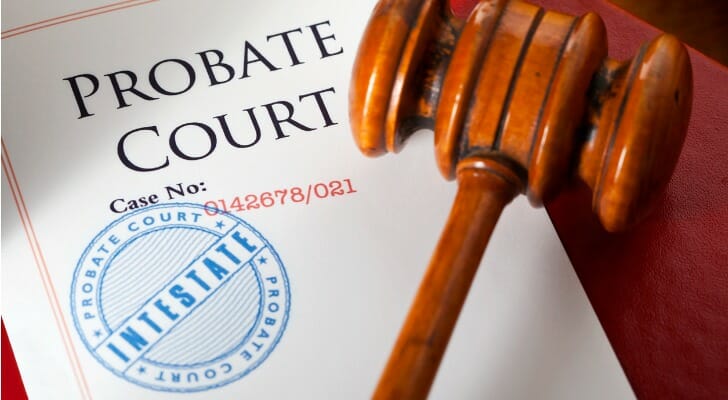Revocable living trusts have become an increasingly popular tool in estate planning. They’re often used by households to avoid the probate process, which in some estates can save heirs both time and money. However, while trusts are a popular option, often a will is the better one. That’s particularly true for simple or relatively small estates. Here’s how they compare. Use the SmartAsset matching tool to find a financial advisor to help you with estate planning.
What Is a Living Trust?
A revocable living trust is a trust that you set up in your lifetime to hold assets for after you die. Like all trusts, a revocable living trust is an independent legal entity. This allows it to carry on after your death and distribute its assets to your heirs and assignees. It is called a living trust because you establish it while you’re alive, and it is revocable because you can change or revoke the trust at any time.
When you establish a revocable living trust you name a trustee who will oversee and manage its assets on your behalf. You can name yourself the trustee, although to use this as an estate planning tool you will also need to name additional co-trustees who can distribute assets after you die. (This is not a self-executing entity.)
Once the trust has been established you transfer assets into it. The trust then owns these assets, which are managed by the trustees. You define who can use and access the assets held in trust, and you can also define to whom the trust should distribute those assets after you die.
To use this as an estate planning tool, then, you would transfer assets into the trust during your lifetime. The terms of the trust would protect your right to continue using those assets and the trustee would oversee them on your behalf. Upon your death, the trustee would distribute those assets to your intended heirs as the trust directs. Because of your power to revoke and amend it, a revocable living trust is considered part of your estate. As a result, the federal government and relevant state government may assess any applicable taxes.
It’s possible to create a revocable living trust on your own, but there are risks; it’s advisable to engage an attorney for this task.
What Is a Will?
A will is a document which defines how you want your assets, rights and responsibilities managed after your death. A will can be a very simple document. Indeed, in many cases someone will leave a will no more complicated than one statement assigning everything to their spouse or next of kin. With large estates, however, wills can get quite complicated.
While distributing your assets is the most well-known part of a will, these documents do far more. A will can also name guardians for your children, leave instructions for how to handle any outstanding debts or taxes, name someone to oversee your affairs after your death and generally leave instructions regarding any of your legal affairs.
Once you die, a will enters what is known as probate. The executor of your estate (the person who you name to manage your affairs) will take charge of following the will’s instructions, while the probate court will oversee this process. With simple wills this can be a swift and inexpensive process. With more complicated documents it can be time consuming and potentially quite expensive. The costs of distributing an estate are taken from the estate itself.
Living Trust vs. Will
From an estate planning standpoint there are several differences between a living trust and a will. Some of the most important to consider are:
Property vs. Rights

A living trust can only distribute assets, and it can only distribute the assets which you transfer into the trust during your lifetime. By contrast a will can manage any and all of your legal affairs after death. This is particularly important when it comes to naming guardians for young children, oversight for any property that those children will inherit, managing any businesses and debts and otherwise taking care of your responsibilities. As a result, even if you establish a living trust you will likely also need to write a will.
Probate Court
Any assets which you distribute through a living trust will not have to go through the probate process. When you die, the trustee will distribute these assets according to the terms of the trust that you set up. This allows your estate to potentially save an expensive and time-consuming process, although the difficulty of probate court is often overstated. Probate typically becomes time consuming with large or complicated estates, when heirs choose to contest terms of the will or when an individual dies intestate. This is by far the most popular reason to use a living trust.
Management of Assets
The trustee of a living trust does not necessarily have to make distributions. Instead, you can leave instructions that the trust should manage or otherwise handle certain assets even after your death. This might be useful, for example, in cases where you would like to leave joint property for your heirs, if you would like to make long-term gifts, or if you would like to leave property for minor children to inherit when they reach adulthood. A living trust can also manage assets for you during your lifetime if you should become incapacitated. This can be helpful while planning for old age and potential infirmity.
Living Costs
Your executor can get paid for the time they spend managing your will and draws that money from the estate. If your will does not set out the terms of this compensation they can apply to the probate court for permission to withdraw money and compensate themselves. Your trustee can also get paid for the time they spend managing your living will. You must define this compensation in the terms of the trust, and generally the trustee can’t apply to a court for compensation that the trust doesn’t offer. If your trust requires significant oversight, however, it is likely that a trustee will need to get paid. The more oversight your trust requires, the more expensive this will likely become.
Reasons Why You May Want to Use a Will and a Living Trust
Using both a will and a revocable living trust can provide broader coverage for your estate plan. While a living trust lets you manage and distribute assets without going through probate, it only applies to assets that have been transferred into the trust. Any property not included in the trust may still need to go through probate unless addressed by a will.
A will is also necessary to handle important matters that a trust cannot, such as naming guardians for minor children, specifying funeral wishes, or designating someone to settle debts. You can also include a pour-over will, which directs any remaining assets to be transferred into your trust after death, ensuring nothing is left out.
Using both documents together can help make sure your estate is fully covered, reduce the chance of legal issues and allow your wishes to be followed even if something is overlooked in the trust. This approach is common for people with minor children, complex family situations, or a mix of assets inside and outside the trust.
Bottom Line

A revocable living trust is a legal entity which allows you to distribute property after your death while avoiding the probate court process. A will is a final set of instructions for how to manage your affairs. While a living trust can distribute assets, it cannot handle rights, responsibilities and debts.
Tips on Estate Planning
- A will has the advantage of being considerably more simple than a living trust. In fact, you can actually write your own.
- Now that you know what a living trust is, the next question is: Does a living trust make sense for you? That’s where a financial advisor comes in to provide expert insight and guidance. Finding a financial advisor doesn’t have to be hard. SmartAsset’s free tool matches you with vetted financial advisors who serve your area, and you can have a free introductory call with your advisor matches to decide which one you feel is right for you. If you’re ready to find an advisor who can help you achieve your financial goals, get started now.
Photo credit: ©iStock.com/gradyreese, ©iStock.com/stocknshares, ©iStock.com/Ridofranz
